Cats Don’t Bite Out of Spite, But Their Behavior Can Feel Personal
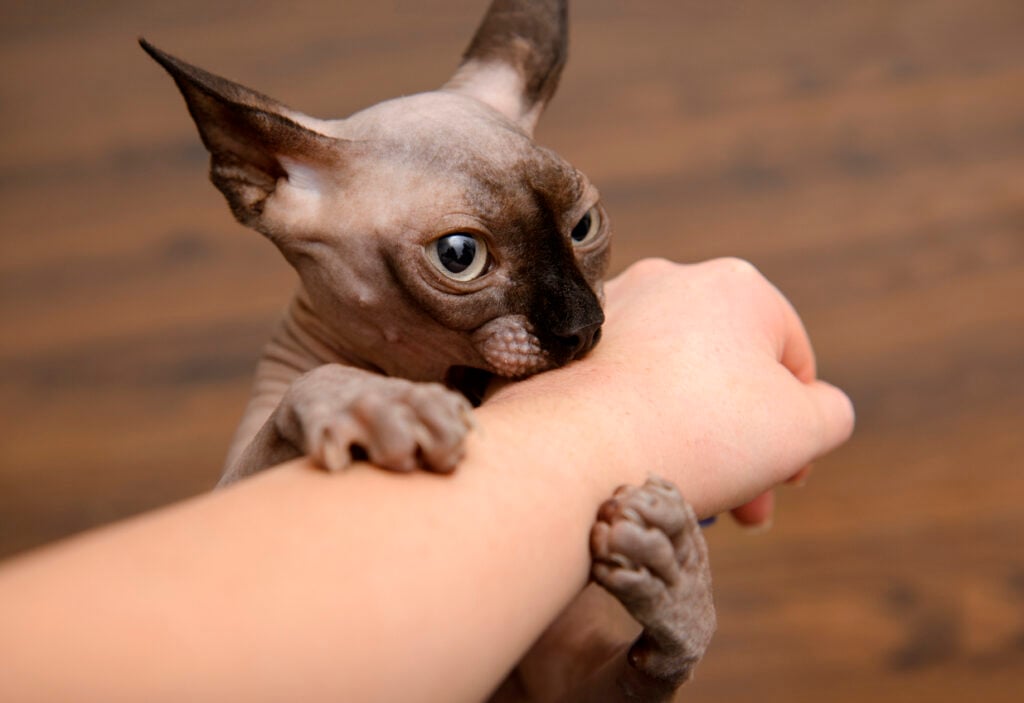
If your cat has ever turned from purring angel to biting demon in a split second, you’re not alone. It’s frustrating, confusing, and let’s be real—it stings (literally). But the truth is, your cat isn’t biting just to be a jerk. There’s a lot more to their nibbles and chomps than meets the eye. Let’s dive into the reasons behind your feline’s biting habit and figure out what they’re really trying to tell you.
1. Overstimulation Turns Their Love Into an Attack

Cats may love pets, but even they have a breaking point. Stroking them too long or too intensely can flip their pleasure switch to overstimulation, and biting is their way of saying, “Enough!” Watch for signs like a twitching tail, flattened ears, or sudden tenseness—those are your warnings to back off before the bite happens.
2. They’re Telling You They’re Done With Playtime

Cats love to play, but sometimes the line between fun and frustration gets blurred. If your kitty has been chasing toys or pouncing for a while, they might bite to say, “Game over.” Try to end play sessions on a high note by reading their body language and stopping before they hit their limit.
3. They’re Anxious and Don’t Know How Else to Cope
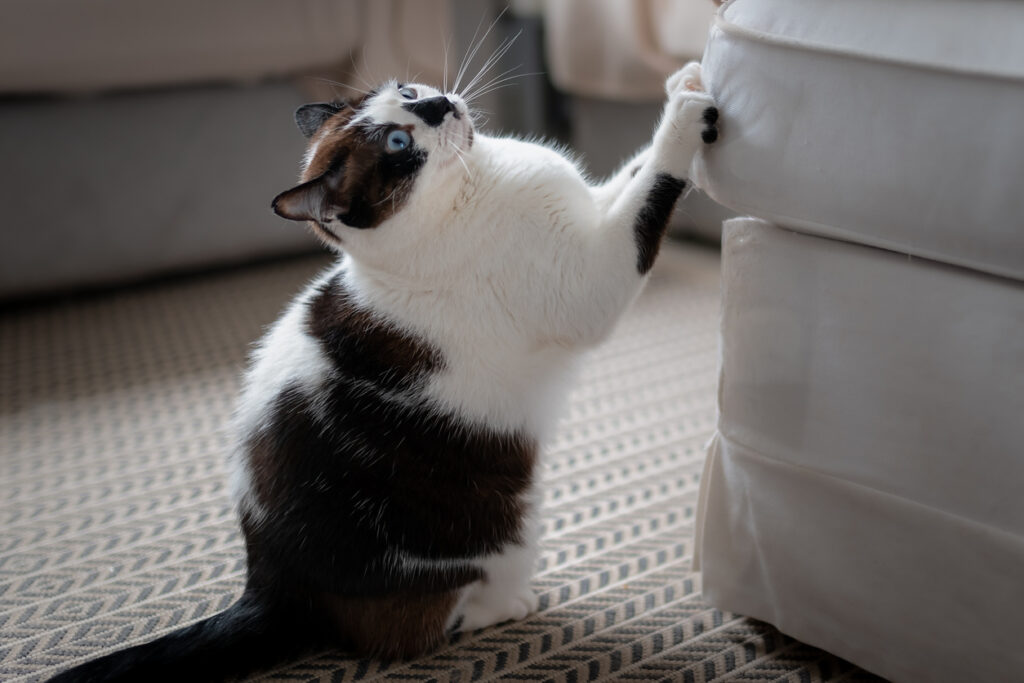
Anxiety can make cats act out in unexpected ways, and biting is often a symptom of stress. Changes in their environment, like a new pet or moving to a new home, can leave them feeling on edge. Providing hiding spots, safe spaces, and plenty of reassurance can help them feel more secure and less likely to lash out.
4. Redirected Aggression Can Make You Their Target
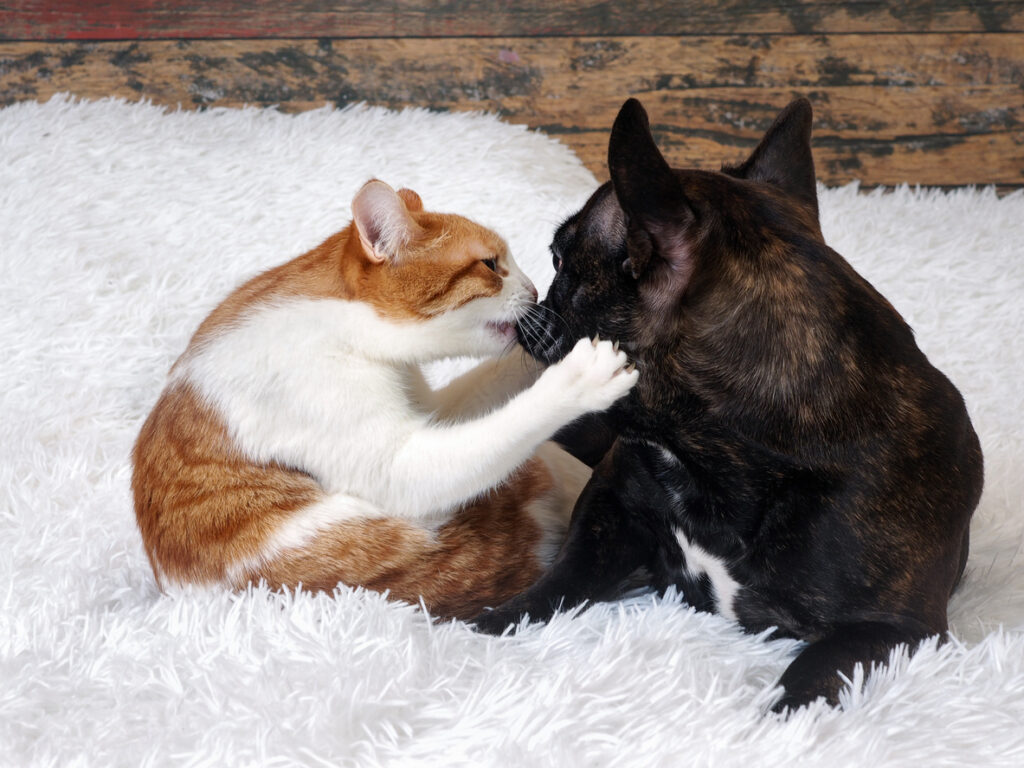
Sometimes, your cat gets riled up by something they can’t reach—like a bird outside the window or another cat in the yard—and they take that frustration out on you. This is called redirected aggression, and it’s surprisingly common. Distract them with toys or redirect their energy to a scratching post to avoid being their bite target.
5. They’re Using Bites as a Form of Communication
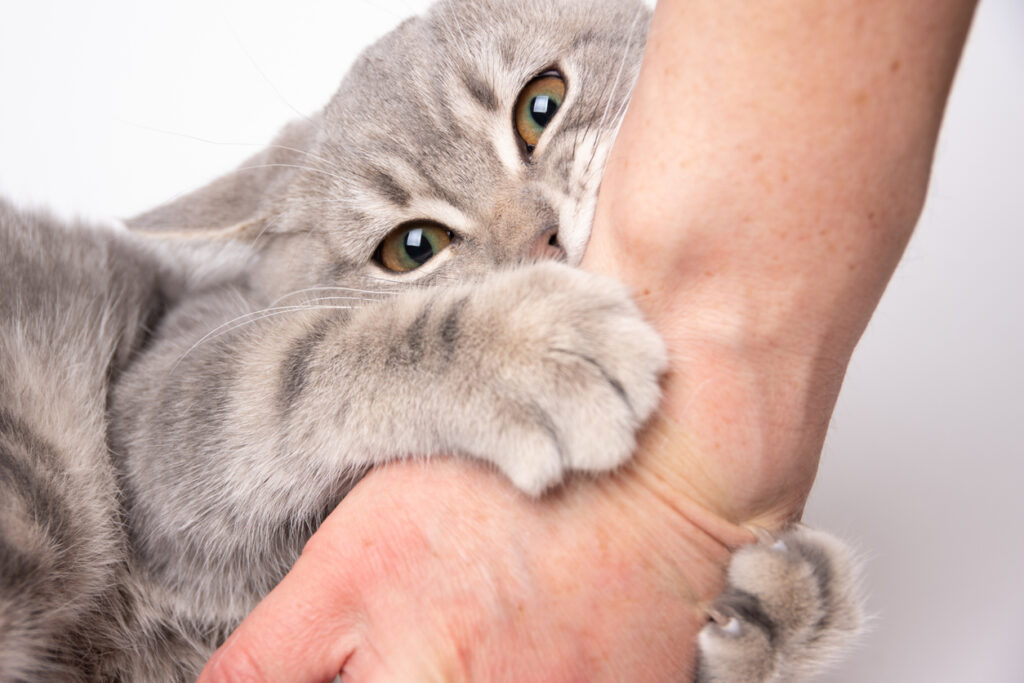
Cats don’t have words, but they have plenty of ways to “speak” to you. Biting can be their version of saying, “Hey, pay attention!” or “Stop ignoring me.” If your cat bites gently, they might be asking for food, attention, or just trying to engage with you in their own weird way.
6. Teething Kittens Can’t Help Themselves
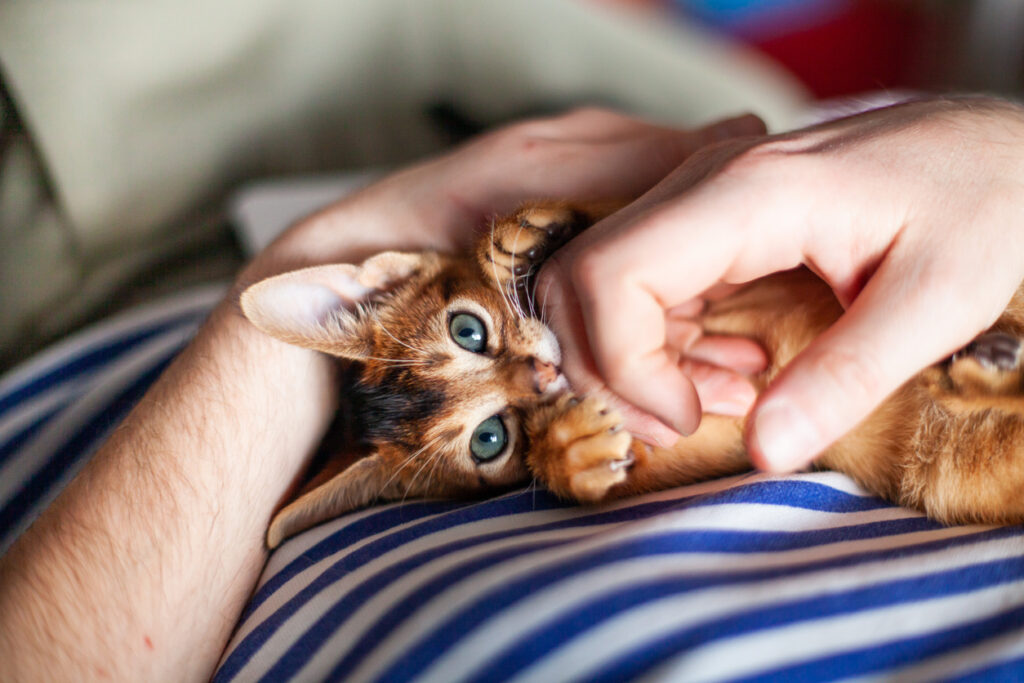
If you’ve got a kitten, those tiny needle teeth are going to find their way to your skin. Teething is uncomfortable, and chewing helps them relieve the pain. Offer appropriate chew toys to save your fingers and teach them early on what’s okay to bite.
7. They Haven’t Been Socialized to Know Better
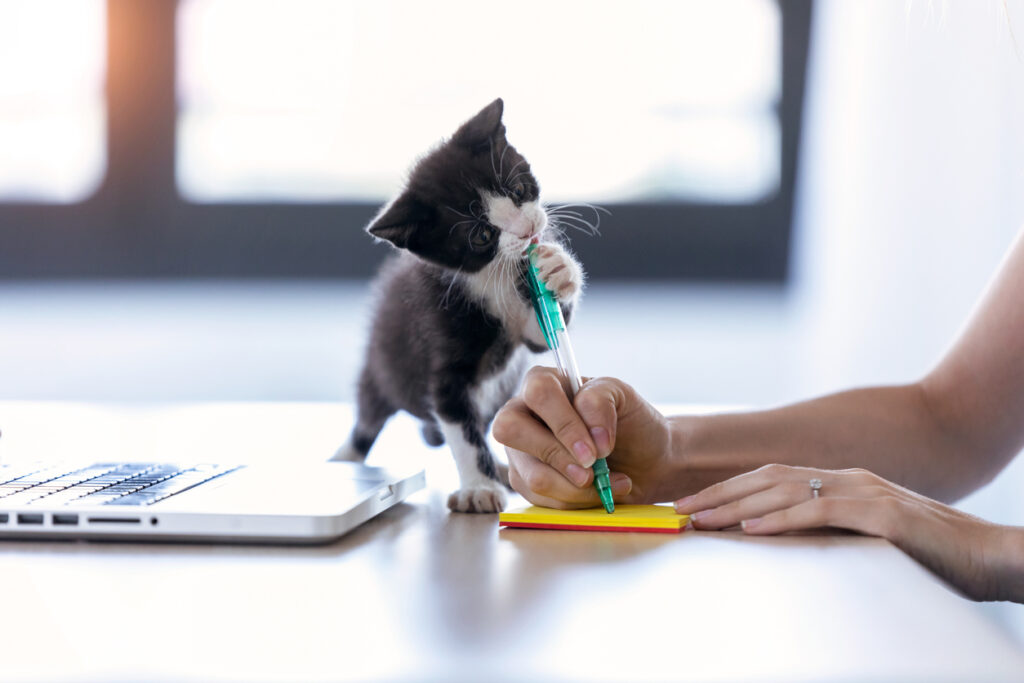
Cats that weren’t socialized as kittens often don’t understand boundaries. Without littermates or humans to teach them what’s acceptable, they may think biting is all part of the game. Gentle, consistent training and redirection can help them learn that chomping on humans isn’t okay.
8. They’re in Pain and Don’t Know How to Tell You

Cats are masters at hiding discomfort, but biting can be a big red flag that something’s wrong. If your normally sweet cat suddenly becomes aggressive, it’s time for a trip to the vet. Dental issues, arthritis, or even an injury could be behind their behavior.
9. They’re Bored and Need More Stimulation

A bored cat is a mischievous cat. Without enough mental and physical stimulation, your kitty might turn to biting out of sheer frustration. Provide puzzle toys, climbing trees, and interactive playtime to keep their mind engaged and their teeth off your skin.
10. You’re Accidentally Encouraging It

Sometimes, we unknowingly reinforce bad behavior. If your cat bites and you respond with laughter, attention, or even a playful scold, they might think it’s a game. Consistently ignore the biting and reward good behavior instead to help them break the habit.
Your cat isn’t a jerk—they’re just a little misunderstood. Understanding the reasons behind their biting can help you address the behavior and strengthen your bond. Because deep down, even the most bitey cats are just furry bundles of love (with sharp teeth).
